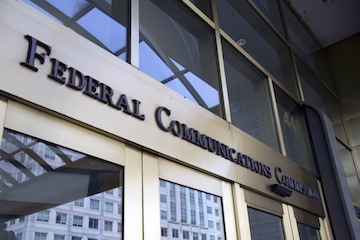FCC Denies ACAC Lump Sum Deadline Stay
Said group fails to meet requisite showings for stay

The smarter way to stay on top of the multichannel video marketplace. Sign up below.
You are now subscribed
Your newsletter sign-up was successful
The FCC has denied ACA Connects' (ACAC) request that it stay its deadline, now Sept. 14, for earth station operators to elect a lump sum payment for their move out of the lower C-Band to make way for a 5G auction.
The cable operators represented by ACAC were already looking to a federal appeals court to step in and stay the deadline.
The FCC's Wireless Communications Bureau concluded that ACAC had not shown a likelihood of winning a review of the FCC's lump sum payment final cost catalog on the merits, or that ACAC members would suffer irreparable harm absent a stay, or that the stay would not harm others, or that the public interest would be served by the waiver. "ACA falls far short of the required showing for each of those required elements," said the bureau.
Related: ACAC Asks Court to Force FCC Stay
In a move last month that ACAC had signaled could land the FCC in court, the Wireless Telecommunications Bureau released the final cost catalog for C-band relocation expenses and lump sum elections and it did not include compensating cable operators for integrated receiver/decoders (IRDS), as ACA Connects and other cable operators had pushed for.
Related: Cable Ops Say FCC Is Lowballing C-Band Payments
Including the IRD costs would make it easier for cable ops to move to fiber delivery, but the FCC said the lump sum was meant to approximate the cost of moving earth stations, not moving to a new distribution technology.
The smarter way to stay on top of the multichannel video marketplace. Sign up below.
The C-Band is used to distribute network programming to broadcasters and cable operators and remote signals to studios.
IRDs receive and decode satellite signals from programmers and are needed if cable ops move earth stations, but not if they transition to fiber delivery.
The FCC is clearing the lower 300 MHz of the 500 MHz C-Band satellite spectrum for auction to wireless carriers for terrestrial broadband. The incumbent users, including cable operators, are being compensated for their move out of that spectrum.
Cable operators wanted the lump sum to include payment for relocating all of their earth stations but be free to use it to transition some or all of their earth stations to fiber delivery instead. ACAC urged the commission "to give earth station operators flexibility to pursue alternative technology upgrade strategies if doing so would be more efficient."
“ACA Connects is disappointed, but not surprised, by the Bureau’s untimely denial of ACA Connects’ Request for Stay," said ACA Connects. Untimely because ACAC had asked the FCC for a decision last week given the fast-approaching deadline--the FCC did extend it from Aug. 31--and failing to get that sought a court stay.
"The Bureau reviewed its own decision and unsurprisingly concluded that it did nothing improper – all while evading rather than answering ACA Connects’ arguments," said ACAC. “That is why ACA Connects has sought relief from the D.C. Circuit – a neutral and disinterested venue for reviewing the Bureau’s errors, which include a lump sum determination that departed from the FCC’s C-Band Order and regulations, was the product of secret meetings with unidentified stakeholders, and rests on undisclosed data and an impossible-to-reproduce methodology.”
Contributing editor John Eggerton has been an editor and/or writer on media regulation, legislation and policy for over four decades, including covering the FCC, FTC, Congress, the major media trade associations, and the federal courts. In addition to Multichannel News and Broadcasting + Cable, his work has appeared in Radio World, TV Technology, TV Fax, This Week in Consumer Electronics, Variety and the Encyclopedia Britannica.

